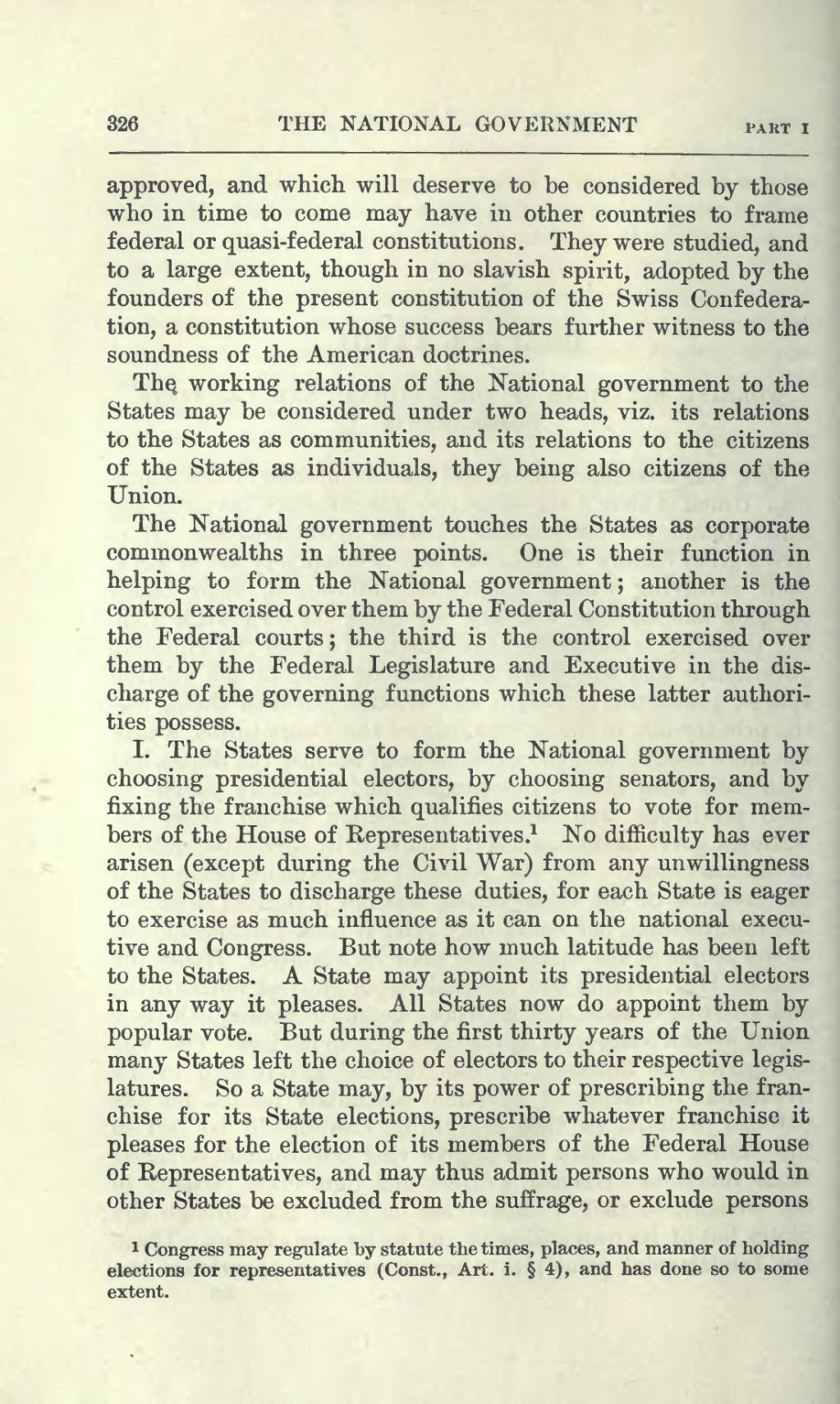approved, and which will deserve to be considered by those who in time to come may have in other countries to frame federal or quasi-federal constitutions. They were studied, and to a large extent, though in no slavish spirit, adopted by the founders of the present constitution of the Swiss Confederation, a constitution whose success bears further witness to the soundness of the American doctrines.
The working relations of the National government to the States may be considered under two heads, viz. its relations to the States as communities, and its relations to the citizens of the States as individuals, they being also citizens of the Union.
The National government touches the States as corporate commonwealths in three points. One is their function in helping to form the National government; another is the control exercised over them by the Federal Constitution through the Federal courts; the third is the control exercised over them by the Federal Legislature and Executive in the discharge of the governing functions which these latter authorities possess.
I. The States serve to form the National government by choosing presidential electors, by choosing senators, and by fixing the franchise which qualifies citizens to vote for members of the House of Representatives.[1] No difficulty has ever arisen (except during the Civil War) from any unwillingness of the States to discharge these duties, for each State is eager to exercise as much influence as it can on the national executive and Congress. But note how much latitude has been left to the States. A State may appoint its presidential electors in any way it pleases. All States now do appoint them by popular vote. But during the first thirty years of the Union many States left the choice of electors to their respective legislatures. So a State may, by its power of prescribing the franchise for its State elections, prescribe whatever franchise it pleases for the election of its members of the Federal House of Representatives, and may thus admit persons who would in other States be excluded from the suffrage, or exclude persons
- ↑ Congress may regulate by statute the times, places, and manner of holding elections for representatives (Const., Art. i. § 4), and has done so to some extent.
